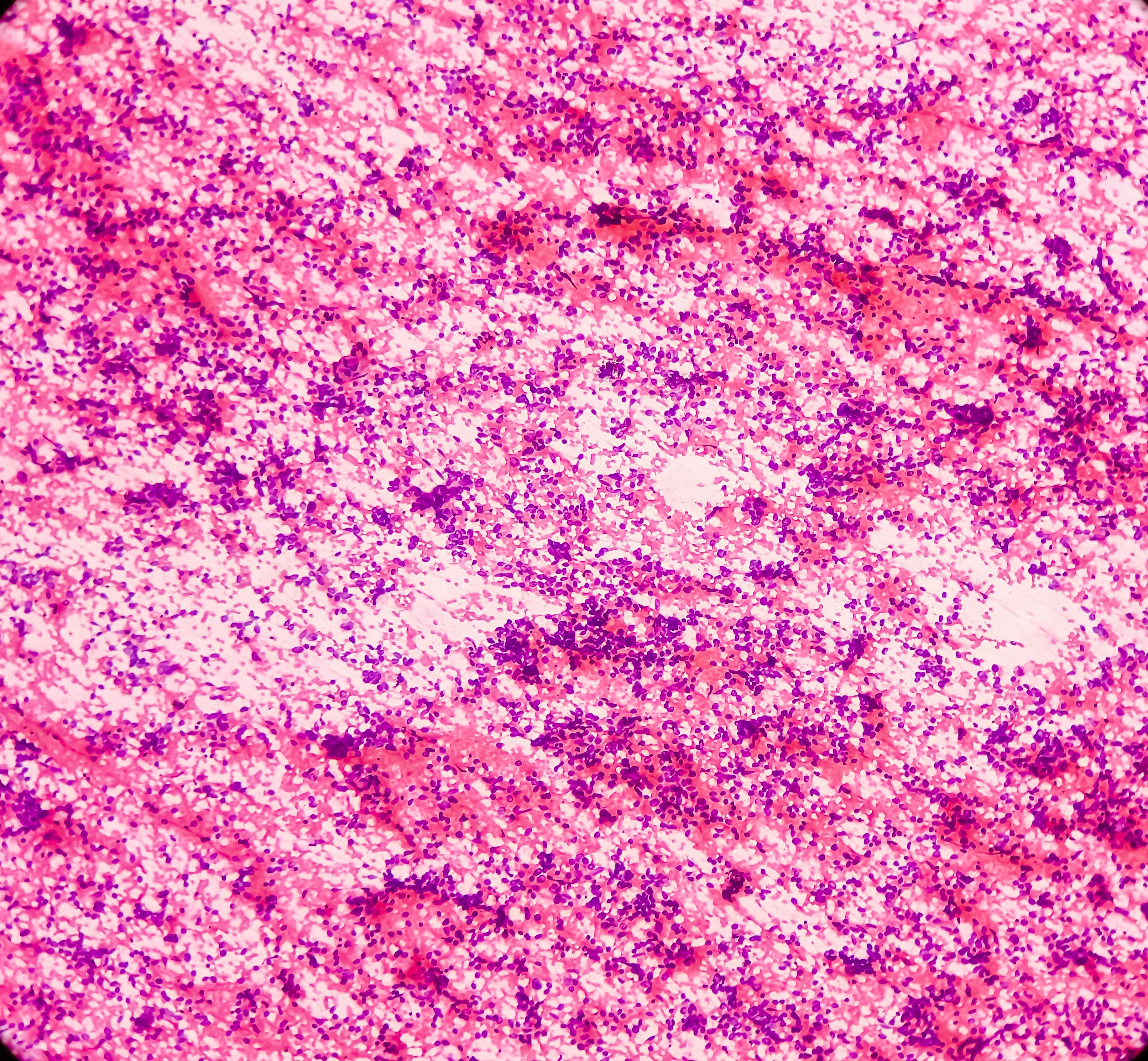FDA Awards Orphan Drug Designation to Quratusugene Ozeplasmid in SCLC
A phase 1/2 study marks the beginning of Genprex, Inc's clinical development of quratusugene ozeplasmid in small cell lung cancer.
- With an orphan drug designation from the FDA, the developer of quratusugene ozeplasmid could receive assistance in the drug development process.
- The developer may also be given 7 years of market exclusivity, if quratusugene ozeplasmid is later granted FDA approval.
- The phase 1/2 ACCLIAM-3 clinical trial (NCT05703971) of quratusugene ozeplasmid is actively recruiting up to 62 patients with extensive-stage SCLC (ES-SCLC).

The FDA has granted orphan drug designation to quratusugene ozeplasmid (Reqorsa) for the treatment of SCLC, according Genprex, Inc, the developer of the drug.1
“We are excited to receive orphan drug designation from the FDA for Reqorsa for patients with SCLC," said Rodney Varner, president, chairman, and chief executive officer of Genprex, Inc, in a press release.
Quratusugene ozeplasmid (Reqorsa) functions by targeting the TUSC2 gene. The drug is intended to be injected intravenously into tumor cells to interfere with cell signaling pathways and recreate pathways for cancer cell death. The agent also modulates the immune response against cancer cells and blocks the development of drug resistance.
Treatment with quratusugene ozeplasmid in patients with ES-SCLC will be investigated in the phase 1/2 ACCLAIM-3 study. Following a 3 + 3 dose-escalation design during the phase 1 portion, patients will be administered IV quratusugene ozeplasmid once every 21 days in combination with IV atezolizumab (Tecentriq) 1200 mg given once every 21 days. Treatment during phase 1 will continued until disease progression or unacceptable toxicity occurs. The primary end point during phase 1 is to determine the maximum-tolerated dose of quratusugene ozeplasmid.2
During the second phase, patients will be treated with IV quratusugene ozeplasmid at the recommended phase 2 dose, once every 21 days in combination with IV atezolizumab 1200 mg, which is given once every 21 days until patients experience disease progression or unacceptable toxicity. The primary end point to be explored during phase 2 is progression-free survival (PFS) rate at 18 weeks according to RECIST v1.1.
Secondary end points to be explored during both phases of the study include safety determined by adverse events, PFS per RECIST v1.1, pharmacokinetics, and overall survival.
Small cell carinoma of lung | Image Credit: © MdBabul - www.stock.adobe.com

Patients are eligible to enroll given they have documented history of histologically or cytologically confirmed ES-SCLC before receiving atezolizumab, carboplatin, and etoposide, and achieved a response following at least 3 cycles of prior therapy. Patients are required to have an ECOG performance status of 0 or1, as well as adequate organ function and laboratory tests at baseline. The study permits patients with asymptomatic brain metastases with additional criteria. Also, patients with stable cardiac condition may enroll with a left ventricular ejection fraction ≥40% within ≤21 days of starting the study. Female patients must produce a negative pregnancy test before beginning study treatment, and all patients must agree to the use of contraception during the study and for 4 months following the end of study treatment. Male patients must also agree to these terms relating to sperm donation.
ACCLAIM-3 excludes patients who cannot tolerate atezolizumab, as well as those previously treated with a gene therapy, or prophylactic cranial irradiation or consolidation thoracic radiation.
"This FDA orphan drug designation in combination with our recently received FDA fast track designation underscores the great need for better treatment options for patients with SCLC, ES-SCLC, and non–small cell lung cancer [NSCLC],” Varner said, in the press release.1
Specifically, the FDA previously granted 3 fast track designations to quratusugene ozeplasmid in combination with other agents. The indications include quratusugene ozeplasmid in combination with osimertinib (Tagrisso) for the treatment of patients with late-stage non–small cell lung cancer (NSCLC) whose disease progressed after treatment with osimertinib (Tagrisso); quratusugene ozeplasmid in combination with pembrolizumab (Keytruda) for the treatment of patients with late-stage NSCLC whose disease progressed after treatment with pembrolizumab; and qaratusugene ozeplasmid in combination with atezolizumab for the treatment of patients with extensive-stage SCLC who did not develop tumor progression after receiving atezolizumab and chemotherapy as initial standard treatment.
“We look forward to initiating the Acclaim-3 clinical trial expected in the fourth quarter of 2023 in order to bring hope of an effective new therapy to patients suffering with this life-limiting cancer,” Varner added.
REFERENCES:
1. Genprex granted FDA orphan drug designation (odd) for Reqorsa® immunogene therapy for the treatment of small cell lung cancer. News release. August 10, 2023. Accessed August 11, 2023. https://tinyurl.com/mpfk5mns
2. Quaratusugene ozeplasmid (Reqorsa) and atezolizumab maintenance therapy in ES-SCLC patients (Acclaim-3). ClinicalTrials.gov. Updated March 24, 2023. Accessed August 11, 2023. https://tinyurl.com/4x39d96m